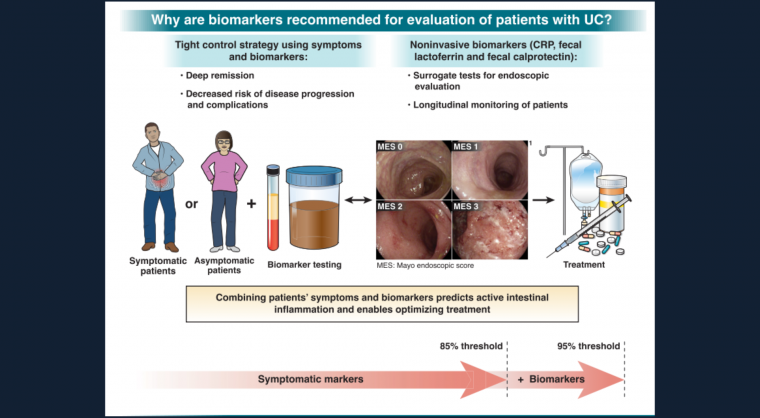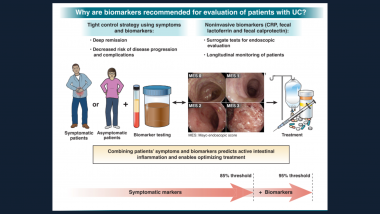AGA released new evidence-based guidelines recommending non-invasive biomarkers as a first-line strategy for monitoring many patients with ulcerative colitis (UC).
The guidelines, published in March’s issue of Gastroenterology, outline use cases for three biomarkers that provide accurate insights into ulcerative colitis disease activity: serum C-reactive protein (CRP) (blood), fecal calprotectin (stool) and fecal lactoferrin (stool).
Patients with ulcerative colitis in symptomatic remission:
- Perform interval biomarker monitoring every six to 12 months.
- AGA recommends stool-based biomarkers over blood testing.
- If biomarkers are normal, AGA suggests continuing biomarker monitoring and avoiding routine endoscopic assessment.
- If biomarkers are elevated, AGA suggests endoscopic assessment.
Patients with symptomatically active ulcerative colitis:
- Biomarker testing should be the first step to determine the need for endoscopic assessment.
- For patients with mild symptoms who have normal or elevated biomarkers, AGA suggests endoscopic assessment.
- For patients with moderate to severe symptoms who have normal biomarkers, AGA suggests endoscopic assessment.
- For patients with moderate to severe symptoms and elevated biomarkers, AGA suggests treatment adjustment and avoiding endoscopic assessment.
Not only are biomarkers accurate, but they provide patients with a cheaper and more convenient option of monitoring to ensure medications are working and ultimately keeping their disease well-managed.”

“Currently some biomarkers are considered experimental by insurers. This guideline is a major step in showing the value of noninvasive biomarkers and the importance of insurers covering biomarker monitoring to improve patient satisfaction and clinical outcomes.”

Additional resources:













